Filter by

Carceral Logics: Human Incarceration and Animal Captivity
Many animal lawyers react to critiques of carceral animal law by contending that punishment is no longer a priority, and that there are only but a handful of anecdotes about over-charging.
- Edition
- -
- ISBN/ISSN
- 9781108919210
- Collation
- -
- Series Title
- -
- Call Number
- 344.049 MAR c
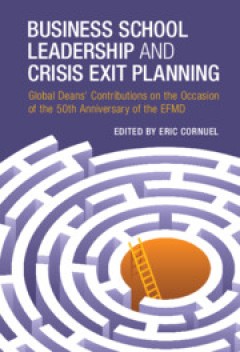
Business School Leadership and Crisis Exit Planning: Global Deans' Contributi…
The European Foundation for Management Development (EFMD) is the largest international accreditation body for business schools, with more than 950 members across 92 countries, including the world’s highestranked schools
- Edition
- -
- ISBN/ISSN
- 9781009083164
- Collation
- -
- Series Title
- -
- Call Number
- 174.4 COR b
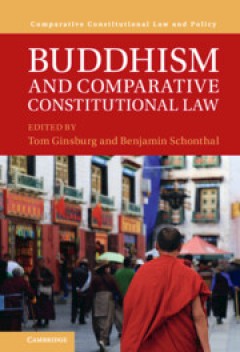
Buddhism and Comparative Constitutional Law
Buddhism and Comparative Constitutional Law offers the first comprehensive account of the entanglements of Buddhism and constitutional law in Sri Lanka, Myanmar, Thailand, Cambodia, Vietnam, Tibet, Bhutan, China, Mongolia, Korea, and Japan.
- Edition
- -
- ISBN/ISSN
- 9781009286022
- Collation
- -
- Series Title
- -
- Call Number
- 342.59 GIN b

British Women Surgeons and their Patients, 1860-1918
When women agitated to join the medical profession in Britain during the 1860s, the practice of surgery proved both a help (women were neat, patient and used to needlework) and a hindrance (surgery was brutal, bloody and distinctly unfeminine).
- Edition
- -
- ISBN/ISSN
- 9781316911921
- Collation
- -
- Series Title
- -
- Call Number
- 617.09 BRO b

Bread, Cement, Cactus: A Memoir of Belonging and Dislocation
In this exploration of themeaning of home, Annie Zaidi reflects on the places in India from which she derives her sense of identity. She looks back on the now renamed city of her birth and the impossibility of belonging in the industrial township where she grew up.
- Edition
- -
- ISBN/ISSN
- 9781108886932
- Collation
- -
- Series Title
- -
- Call Number
- 155.2 ZAI b
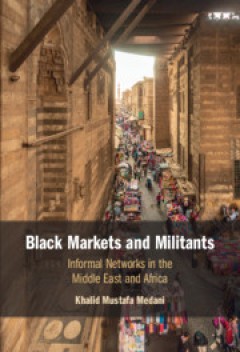
Black Markets and Militants: Informal Networks in the Middle East and Africa
Understanding the political and socio-economic factors which give rise to youth recruitment into militant organizations is central to grasping some of the most important issues that affect the contemporary Middle East and Africa.
- Edition
- -
- ISBN/ISSN
- 9781108961011
- Collation
- -
- Series Title
- -
- Call Number
- 320.557 MED b
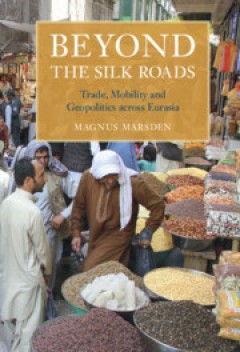
Beyond the Silk Roads
Small-scale traders play a crucial role in forging Asian connectivity, forming networks and informal institutions separate from those driven by nation-states, such as China's Belt and Road Initiative. This ambitious study provides a unique insight into the lives of the mobile traders from Afghanistan who traverse Eurasia.
- Edition
- -
- ISBN/ISSN
- 9781108974387
- Collation
- -
- Series Title
- -
- Call Number
- 382.095 MAR b

Beyond Borders: The Human Rights of Non-Citizens at Home and Abroad
- Edition
- -
- ISBN/ISSN
- 9781108914994
- Collation
- -
- Series Title
- -
- Call Number
- 342.083 LAN b
- Edition
- -
- ISBN/ISSN
- 9781108914994
- Collation
- -
- Series Title
- -
- Call Number
- 342.083 LAN b

Artificial Intelligence and International Economic Law: Disruption, Regulatio…
Artificial intelligence (AI) technologies are transforming economies, societies, and geopolitics. Enabled by the exponential increase of data that is collected, transmitted, and processed transnationally, these changes have important implications for international economic law (IEL).
- Edition
- -
- ISBN/ISSN
- 9781108954006
- Collation
- -
- Series Title
- -
- Call Number
- 006.3 PEN a
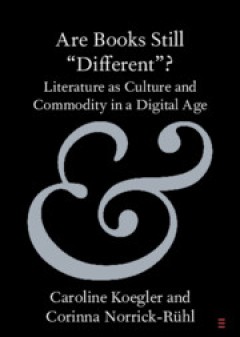
Are Books Still 'Different'?: Literature as Culture and Commodity in a Digita…
The famous 1962 precedent at the Restrictive Practices Court of the United Kingdom, “Books are different,” is still the reasoning behind many cultural policies around the world, building on long-standing assumptions surrounding “the book.”
- Edition
- -
- ISBN/ISSN
- 9781108982450
- Collation
- -
- Series Title
- -
- Call Number
- 379.24 KOE a
 Computer Science, Information & General Works
Computer Science, Information & General Works  Philosophy & Psychology
Philosophy & Psychology  Religion
Religion  Social Sciences
Social Sciences  Language
Language  Pure Science
Pure Science  Applied Sciences
Applied Sciences  Art & Recreation
Art & Recreation  Literature
Literature  History & Geography
History & Geography